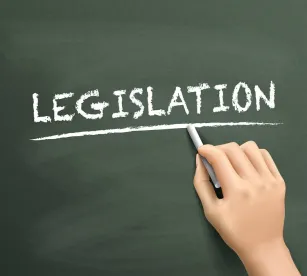Important amendments went into effect on December 1.
The major changes to the Federal Rules of Civil Procedure that govern discovery in federal cases affect Rules 26, 34, and 37.[1]
Changes to Rule 26(b)(1)
The concept of proportionality and its factors are specifically included in the scope of discoverable information. The factors relating to proportionality include
the importance of the issues at stake in the action;
the amount in controversy;
the parties’ relative access to relevant information;
the parties’ resources;
the importance of the discovery in resolving the issues; and
whether the burden or expense of the proposed discovery outweighs its likely benefit.
The language that defines the scope of discovery has also changed—the former language that discovery should be “reasonably calculated to lead to the discovery of admissible evidence” was removed. The Advisory Committee stated that this language was wrongly interpreted to define the scope of discovery and that such a reading has lead to abusively overbroad discovery.
Further, the new version of the rule includes a cross-reference to 26(b)(2) to underscore the court’s obligation to supervise discovery to prevent abuse by appropriately limiting the scope of discovery.
Last, the amendment drops the language “for good cause, the court may order discovery of any matter relevant to the subject matter involved in the action” for being unnecessary and rarely invoked.
Changes to Rule 26(c)
In a protective order, the rule now specifically states that the court can allocate expenses for the disclosure or discovery of information. Judges have always had the authority to shift the cost of discovery, but it is now codified in the rule.
Changes to Rule 26(f)(3)
The discovery plan (26(f) report) must now specifically address any issues about preserving electronically stored information (ESI) and should also include any requests that the court enter an order under Fed. R. Evid. 502(d) if the parties agree on a procedure to assert privilege after production.
Changes to Rule 34
Under revised Rule 34(b)(2), objections to document requests must be made with specificity, and boilerplate general objections are insufficient. If a producing party is withholding documents pursuant to its objections, it must say so. The party need not create a “log” of withheld documents in the manner of a privilege log, but should state, for example, the limits that the party will place on a search for documents responsive to a request that it objects to as overbroad.
Revised Rule 34(b)(2)(B) also includes language that specifically codifies the typical practice of producing copies of documents in lieu of permitting inspection, adding that parties may “state that it will produce copies of documents or of electronically stored information instead of permitting inspection.”
Changes to Rule 37
The standard for imposing sanctions for failing to preserve ESI has changed under Rule 37(e). Under the new standard, a court may sanction a party if (1) ESI should have been preserved, (2) the party failed to take reasonable steps to preserve it, and (3) it cannot be restored or replaced through additional discovery.
If the court finds that a party has prejudiced by the failure to preserve evidence, the court may only order sanctions sufficient to cure the prejudice. However, if the court finds that the party that failed to preserve acted with “intent to deprive another party of the information’s use in litigation,” it may order severe sanctions (i.e., an adverse inference or even a dismissal or default judgment against the spoliating party).
This change addresses the varying standards that courts have established in regard to sanctions, essentially adopting the rule that bad faith on the part of a spoliating party must be established for a court to order severe sanctions (compare to the Southern District of New York case law prior to these amendments that allow severe sanctions for negligent spoliation).
Other Changes
Rule 1: Amended to specifically state that parties also bear responsibility to employ the rules to “secure the just, speedy, and inexpensive determination of every action and proceeding” and not just the court. This change does not create a separate basis for sanctions. The Advisory Committee debated but ultimately did not include an explicit “duty to cooperate” on discovery.
Rule 4(m): Changed the time limit for service of a complaint from 120 days to 90 days.
Rule 16 (b)(3): Reduced the time to issue a Scheduling Order to the earlier of 90 days after any defendant has been served or 60 days after any defendant has appeared, and added three items to the list contents permitted in a Scheduling Order: (1) a provision regarding preservation of ESI, (2) a provision regarding any agreements under Fed. R. Evid 502, and (3) a requirement that before filing a discovery motion, the movant must request a conference with the court.
Rules 30, 31 and 33: Parallel amendments were made to these rules to reflect the proportionality considerations added to Rule 26(b)(1).
Rule 55: Amended to make clear that the court may set aside a final default judgment pursuant to the standards set forth in Rule 60(b) only.
Rule 84 and the Appendix of Forms: This rule, which provided a set of sample forms to use in federal cases, was abrogated as no longer necessary.
Conclusion
Many of these amendments are codifications of existing case law that governs discovery, but some, especially the amended Rule 37(e) and Rule 34(b)(2), represent the adoption of one approach from multiple competing lines of cases. The Advisory Committee notes that accompany the rules are instructive and helpful, especially in the areas where substantial changes have been made. Litigants who engage in discovery in federal court should be aware of these changes and adjust their practices accordingly.
[1] Amendments went into effect for Rules 1, 4, 16, 26, 30, 31, 33, 34, 37, and 55. Rule 84 was abrogated. These amendments apply in civil cases filed on or after December 1, 2015 and “insofar as just and practicable” in all cases pending as of December 1, 2015. April 29, 2015 Order of the United States Supreme Court. A brief list of the amendments to Rules 1, 4, 16, 30, 31, 33, 55 and 84 is provided at the end of this article.





 />i
/>i

